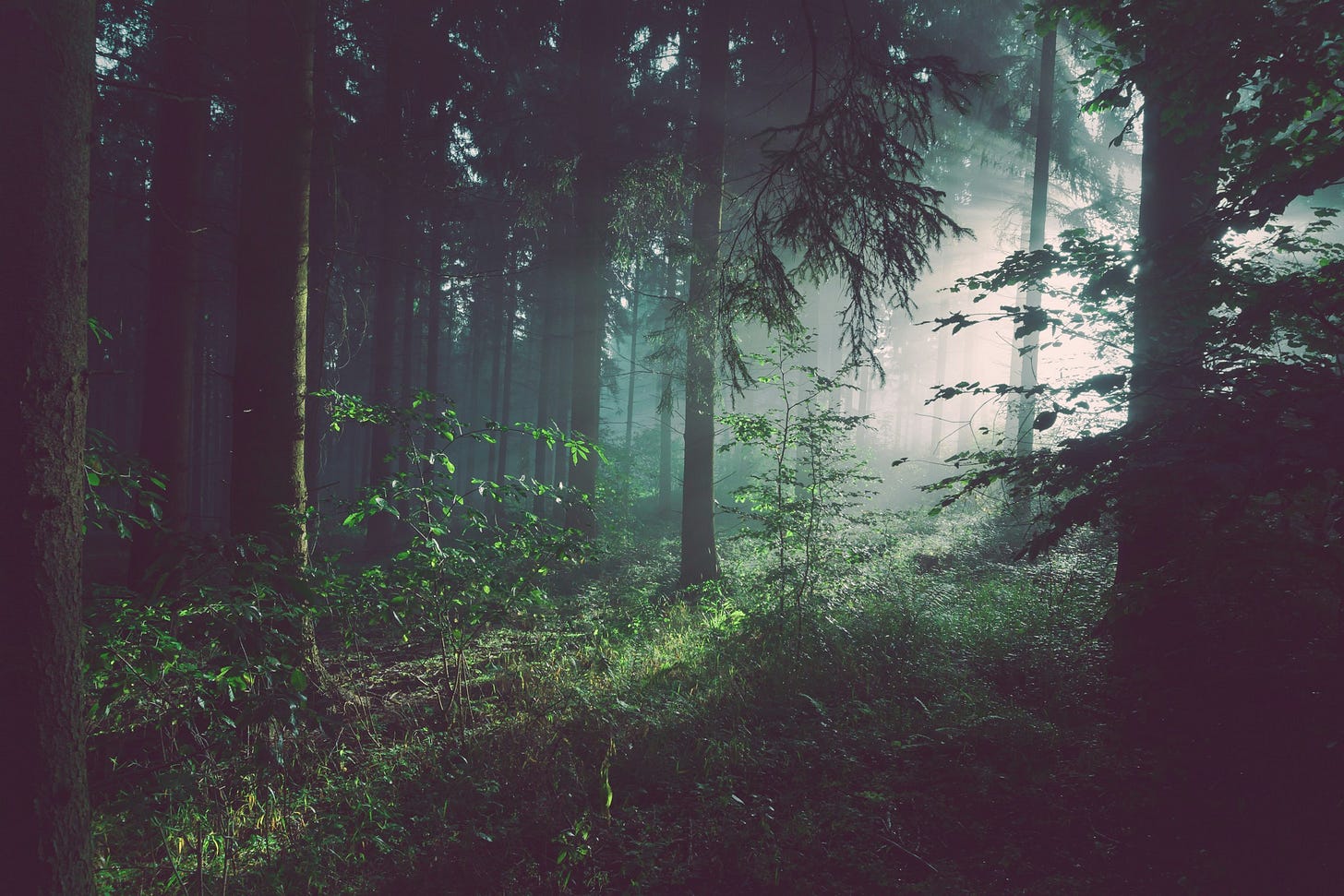Which Path Is the Right Path?
When Life Doesn’t Show the Way

I remember one afternoon in late November, walking in the forest and reaching a place where six roads met. There were no signs, it was close to sundown and I had no idea which one to take.
It was ten years ago, and back then I didn’t see decisions as complex mathematical equations and so good or bad, they tended to happen much faster.
I quickly realized I had two choices: sit and wait for a clear sign (ideally, the solution itself), or pick a path and take it as it came. I chose the latter and let my feet guide me down The One.
As my body moved along the path, my mind began to second-guess the decision. It was clearly the hardest path to walk on—its difficulty was obvious from the start—and then, out of nowhere, I encountered deep, wet sand that made every step a struggle.
I thought to myself: “I bet I’m on the wrong path!”
And yet, I eventually made it out before the night fully descended on the forest.
Was it the right path?
Perhaps any path would have been the right one—some longer, some shorter, but all paths lead out of a forest in the end. Unless, of course, you’re walking in circles.
Now, ten years later, I find myself wondering: why is decision-making so much easier when you have little time to weigh your options?
I’d argue that most of you reading this would have made a quick decision in that forest too.
Is it easier because it’s a physical challenge? And if so, why? The stakes were certainly not lower—imagine spending a cold night in the forest, completely alone, with no supplies and no one coming to your rescue.
Or is it because you wouldn’t have to live with the consequences of your decision for long? Either you make it out of the forest, or you spend the night there—or a few nights. Worst case, you die, but without provisions, that wouldn’t take too long. With life’s more long-term decisions, you will also face some level of suffering, and most certainly eventually die. So why does the prospect of quick death feel easier to live with?
Or maybe it’s easier to make decisions under tight deadlines because there’s no time to overthink, making us more likely to choose from the gut. If that’s the case, perhaps we should impose shorter deadlines on ourselves for big life decisions and, you guessed it—choose from the gut.
Most of us like having options but feel overwhelmed when standing at a crossroads.

We’d much rather have a clear sign pointing us in the right direction. After all, the stakes are high, life is short, and our minds can drive us crazy with endless lists of pros and cons, constantly reminding us that no choice comes without a trade-off.

But what if we embraced the idea that there isn’t just one right path, and so we’re not choosing between right and wrong, but between multiple possibilities that could all lead to something worthwhile? And if one path is righter than another, we don’t let ourselves spiral into endless analysis trying to figure it all out, but simply let our feet lead the way?
Ok, Gandalf, or when in doubt we can also follow our nose. :)
How do YOU find out which path is the right path? What do YOU do when life doesn't show you the way? I’m looking forward to your share.


I think you said it perfectly here: "Perhaps any path would have been the right one—some longer, some shorter, but all paths lead out of a forest in the end. Unless, of course, you’re walking in circles." I tend to make decisions quickly (an asset until it becomes a liability!) You can always turn around and go back and/or choose another path. Just have to make sure you aren't walking in circles - unless that's the goal ;)